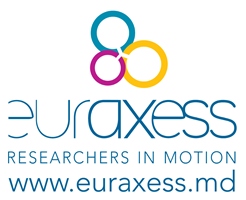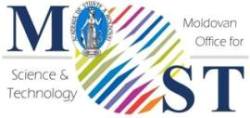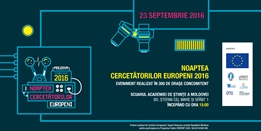 EARTO very much welcomes the report of the High-Level Group on Maximising EU R&I Impact chaired by Pascal Lamy, which definitely closes the circle and goes back to the essential. It places research & innovation as a key geopolitical factor for the future of Europe. It also brings back the target of 3% GDP spending on R&I as one of the new Ten Commandments of the post-Brexit EU. In that view, we can only applaud the call to double the overall budget of the post-2020 EU R&I programme, as this is indeed “the best investment the EU can make”. A seven-year budget of €120 billion would be the bare minimum: it is now a crucial time for the EU to invest in its future! TheEuropean Parliament has sent the same message last month, and the EC Reflection Paper on the Future of EU Finances published last week similarly calls for an increase of budget to strengthen EU Competitiveness whatever scenario is chosen for the Future of Europe. EU policy-makers must now pick these strong recommendations up during the EU budget negotiations.
EARTO very much welcomes the report of the High-Level Group on Maximising EU R&I Impact chaired by Pascal Lamy, which definitely closes the circle and goes back to the essential. It places research & innovation as a key geopolitical factor for the future of Europe. It also brings back the target of 3% GDP spending on R&I as one of the new Ten Commandments of the post-Brexit EU. In that view, we can only applaud the call to double the overall budget of the post-2020 EU R&I programme, as this is indeed “the best investment the EU can make”. A seven-year budget of €120 billion would be the bare minimum: it is now a crucial time for the EU to invest in its future! TheEuropean Parliament has sent the same message last month, and the EC Reflection Paper on the Future of EU Finances published last week similarly calls for an increase of budget to strengthen EU Competitiveness whatever scenario is chosen for the Future of Europe. EU policy-makers must now pick these strong recommendations up during the EU budget negotiations.
Our motto being “Impact Delivered”, EARTO also strongly supports the focus on impact throughout the report. Besides, the report recognises that the EU added value lies in an ecosystem approach with cross-border and multidisciplinary collaboratio
The report stresses the need to make EU State-Aids rules more innovation-friendly, which EARTO very much agrees with. This is also the key message of the EC sponsored ENIRI study on State Aids for RDI published last April: “The EU’s State Aid Framework constitutes a handicap for EU industry and research”. As there is no equivalent abroad, EU state aid rules hamper EU’s competitiveness in today’s globalised world, distorting the playing field at the EU’s disadvantage. In this view, EU policy makers must better integrate R&I and competition policies for Europe to be able to play a key role at international scale.
EARTO strongly supports the reports’ call to stop looking at FPs as a standalone programme, and to include the synergy of funds for R&I as a new mindset in the EU’s budget negotiations. It is indeed crucial to design the EU post-2020 R&I programme and the future structural funds “with complementary, mutually reinforcing and interoperable intervention logics”. Modernising the cohesion funds with a substantial focus on financing R&I capacity-building is also essential.
Finally, EARTO also agrees on the fine-tuning of the 3-pillars’ structure for the future programme, with Pillar 2 focussed not only on innovation with the EIC but also on Competitiveness with a strong role for Public-Private Partnerships to mobilise joint investment. This will be key to link to industry and leverage private investment to reach the EU target of 3% GDP invested in R&I. This is a point we strongly made in our Joint Declaration with Industry last month.
EARTO very much hopes that these key recommendations will be picked-up by EU policy makers, as they are crucial for the EU to invest in its own future.
EARTO - European Association of Research and Technology OrganisationsFounded in 1999, EARTO promotes of Research and Technology Organisations and represents their interest in Europe. EARTO network counts over 350 RTOs in more than 20 countries. EARTO members represent 150.000 highly-skilled researchers and engineers managing a wide range of innovation infrastructures.RTOs – Research and Technology Organisations
From the lab to your everyday life. RTOs innovate to improve your health and well-being, your safety and security, your mobility and connectivity. RTOs’ technologies cover all scientific fields. Their work range from basic research to new products and services development. RTOs are non-profit organisations with public missions to support society. To do so, they closely cooperate with industries, large and small, as well as a wide array of public actors.
EARTO – The European Association of Research & Technology Organisations Tel: +32 2 502 86 98 | www.earto.eu | Rue Joseph II 36-38, 1000 Brussels Follow us on twitter | LinkedIn





